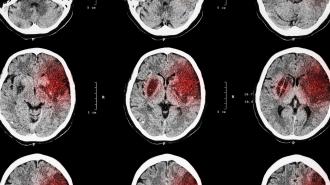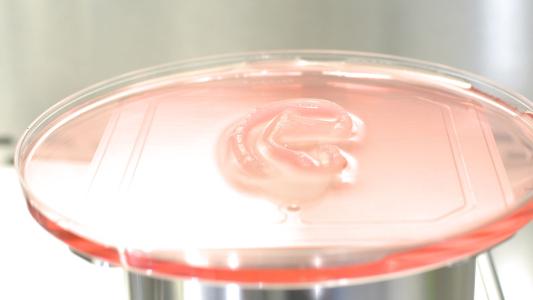Ohio State scientists have discovered that an already approved and widely prescribed drug, called gabapentin, may help the brain repair itself after a stroke.
Gabapentin is currently used to control seizures and help manage nerve pain, but in mice with blood clot-induced strokes, the drug helped the animals regain fine motor control in their upper limbs, with lasting improvement even after the treatment ended.
The discovery builds off of previous research, where the investigators learned that gabapentin blocks a protein in the brain that can hinder healing.
Over 600,000 people suffer a first stroke per year.
“When this protein is high, it interferes with neurological recovery,” Andrea Tedeschi, assistant professor of neuroscience at Ohio State, said in a statement.
He compared the protein to a brake pedal in a car. If you’re jamming down on the brake, you won’t go too far, no matter how hard you push on the gas pedal.
“If you start lifting the brake pedal and continuously press on the gas, you can really speed up recovery,” Tedeschi said. “We think that is gabapentin’s effect on neurons, and there is a contribution of non-neuronal cells that tap into this process and make it even more effective.”
Stroke recovery: An ischemic stroke is caused by a clot choking off blood supply to part of the brain, leading to the death of brain cells in the impacted region.
This can lead to long term complications, including loss of muscle use, difficulty talking and swallowing, and emotional and memory issues.
“Restoration of these functions enables independent living and therefore represents a high priority for those afflicted by stroke,” the researchers wrote in their study, published in Brain.
According to the CDC, over 600,000 people suffer a first stroke each year, which means millions of people will need help recovering in the next few years alone.
Scientists have discovered that an already approved and widely prescribed drug, called gabapentin, may help the brain repair itself after a stroke.
The natural repair system: The first level treatment for ischemic stroke is to re-establish blood flow as quickly as possible, but the researchers found that this crucial step had no impact on gabapentin’s effectiveness, with motor function improvement happening whether the mice received the drug an hour or a day after stroke onset.
After the mice suffered a stroke, the neurons responsible for sending signals to the muscles from the undamaged sides of their brains began sprouting axons to form new connections, something popularly referred to as “plasticity” — the ability of different parts of the brain to adapt and repair damaged circuits and structures.
“The mammalian nervous system has some intrinsic ability to self-repair,” Tedeschi said, but not enough.
Injured neurons may become “hyperexcited,” firing signals that can cause muscle contractions and pain. If a brain protein called alpha2delta2 is expressed too much after a damaging incident like a stroke, it can contribute to this condition, while also slowing down axon growth.
A better fix: Gabapentin inhibits this protein, allowing the nerve cells to regrow and reorganize more efficiently and effectively.
“We blocked the receptor with the drug and asked, will even more plasticity occur? The answer is yes,” Tedeschi said.
Gabapentin restored forelimb motor control in mice.
Mice that received gabapentin daily for six weeks regained fine motor control in their forelimbs, which lasted for up to two weeks after dosing stopped; control mice who did not receive gabapentin did not regain motor control.
While a far cry from a sure thing in humans, the researchers believe that their study could be a first step towards finding a new use for an already-approved drug. Because the drug is already so widely used and understood, trials in humans may be faster and easier than for new drugs.
“These observations highlight the strong potential for repurposing gabapentinoids as a promising treatment strategy for stroke repair,” they wrote.
We’d love to hear from you! If you have a comment about this article or if you have a tip for a future Freethink story, please email us at [email protected].





